Staff Reporter
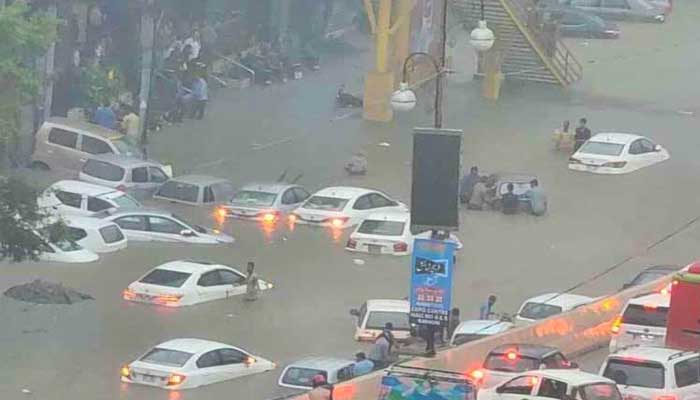
Karachi: At least eight people, including four children and one woman, have died in rain-related incidents as heavy monsoon rains battered Karachi on Tuesday. The downpour flooded major roads, paralysed traffic, caused power outages, and prompted the mayor to declare a rain emergency.
Dark clouds covered the city by afternoon, followed by heavy showers with strong winds in Surjani Town, Federal B Area, Gulshan-e-Iqbal, Qayyumabad, Gulistan-e-Jauhar, Malir, Shahrah-e-Faisal, Nazimabad, and New Karachi. Visuals showed main roads and city arteries submerged under water, leaving traffic stranded for hours.
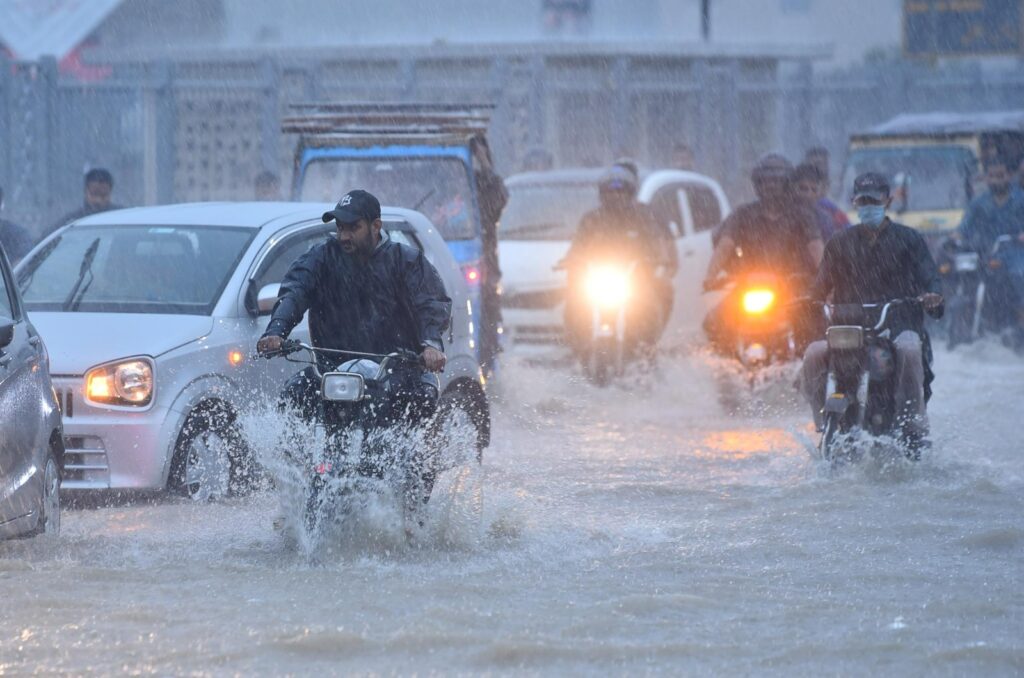
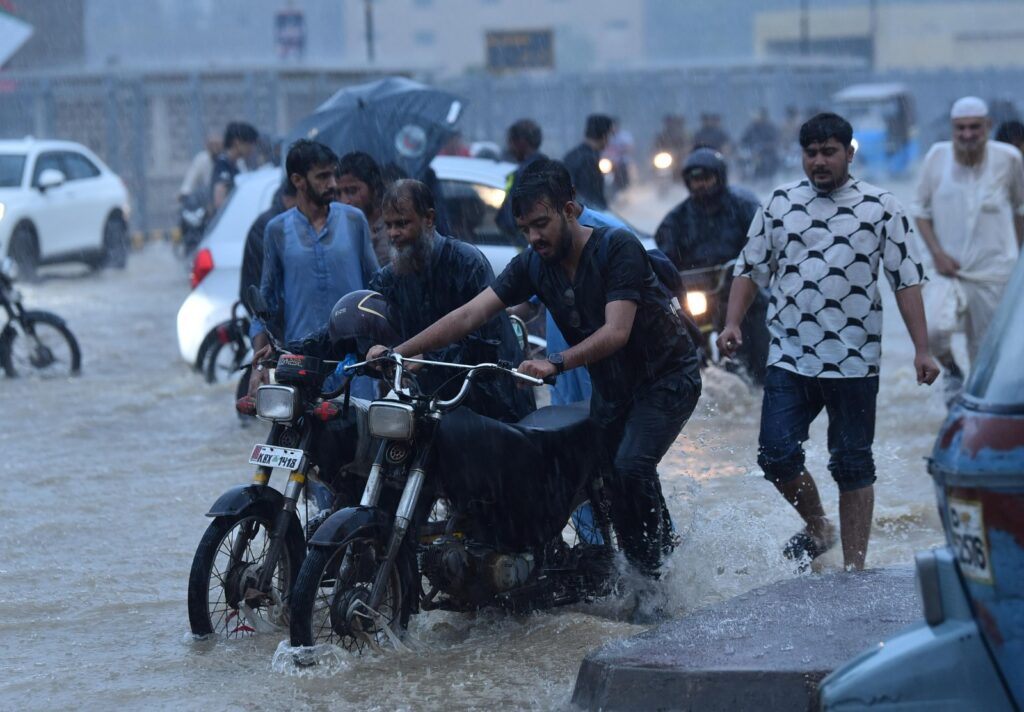
Casualties and Incidents
In Gulistan-e-Jauhar’s Block-12, four members of a family were killed when a house wall collapsed, including Maryam (4), Hamza (3), Samiya (24), and another man aged around 28. A 10-year-old child was injured. In Orangi Town near Aqsa Mosque, an eight-year-old boy, Abdullah, son of Abbas, died when a wall collapsed. Rescue 1122 teams retrieved the victims and provided treatment where possible.
In North Karachi, a man died due to electric shock, while in Malir, a fire at a petrol pump—suspected from a short circuit—claimed one life and left two others critically burned.
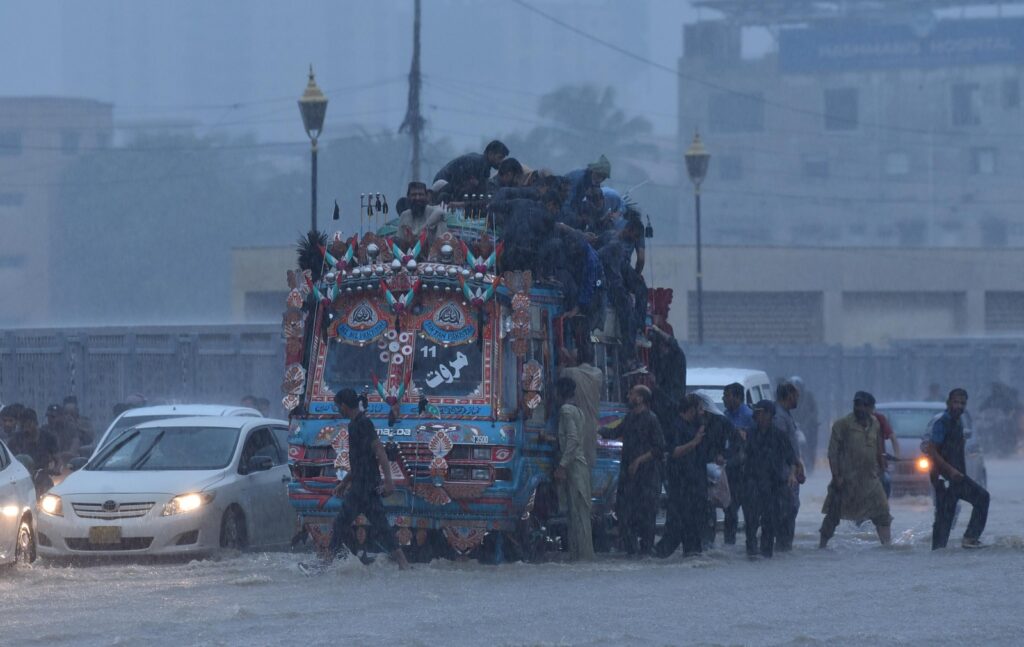
Rainfall Statistics and Urban Impact
The Pakistan Meteorological Department (PMD) reported Gulshan-i-Hadeed as the wettest area with 145mm of rainfall, followed by Airport Old Area (138mm), Keamari (137mm), Jinnah Terminal (135mm), University Road (132mm), DHA Phase VII (121mm), and PAF Faisal Base (114mm). Other areas such as Surjani Town (111mm), North Karachi (108mm), Korangi (97mm), Nazimabad (92mm), Orangi Town (66mm), Gulshan-e-Maymar (75mm), and PAF Masroor Base (75mm) also experienced heavy rainfall.
Traffic came to a near standstill on Shahrah-e-Faisal, University Road, II Chundrigar Road, Nagan Chowrangi, Hub River Road, Miran Naka, Bilawal Chowrangi, and other major intersections. Rescue and emergency teams remained deployed across the city to manage water drainage and traffic.
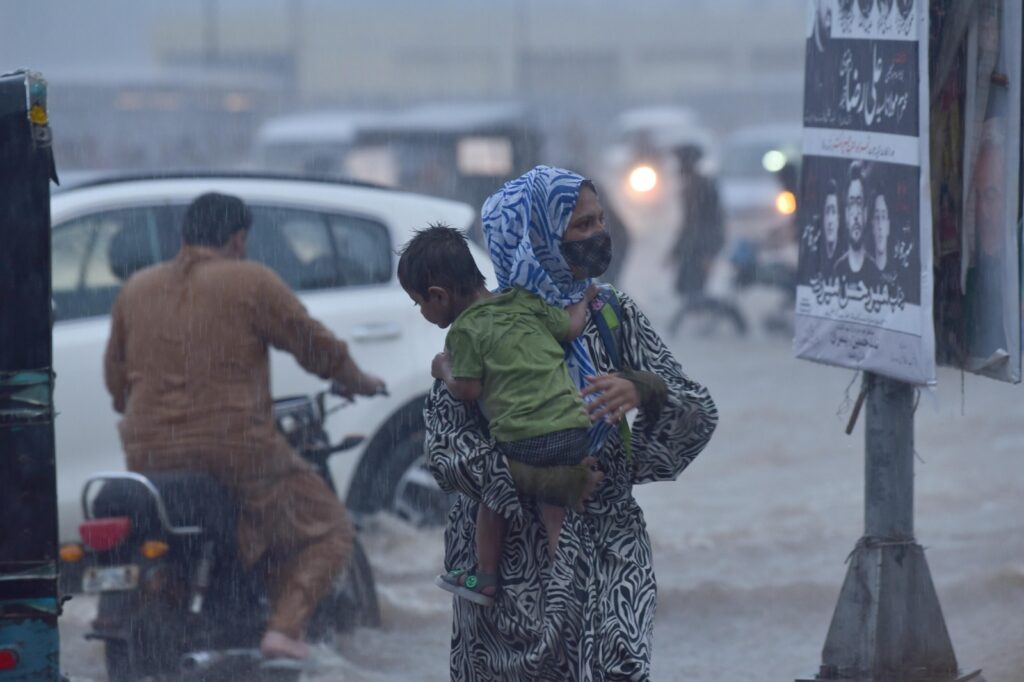
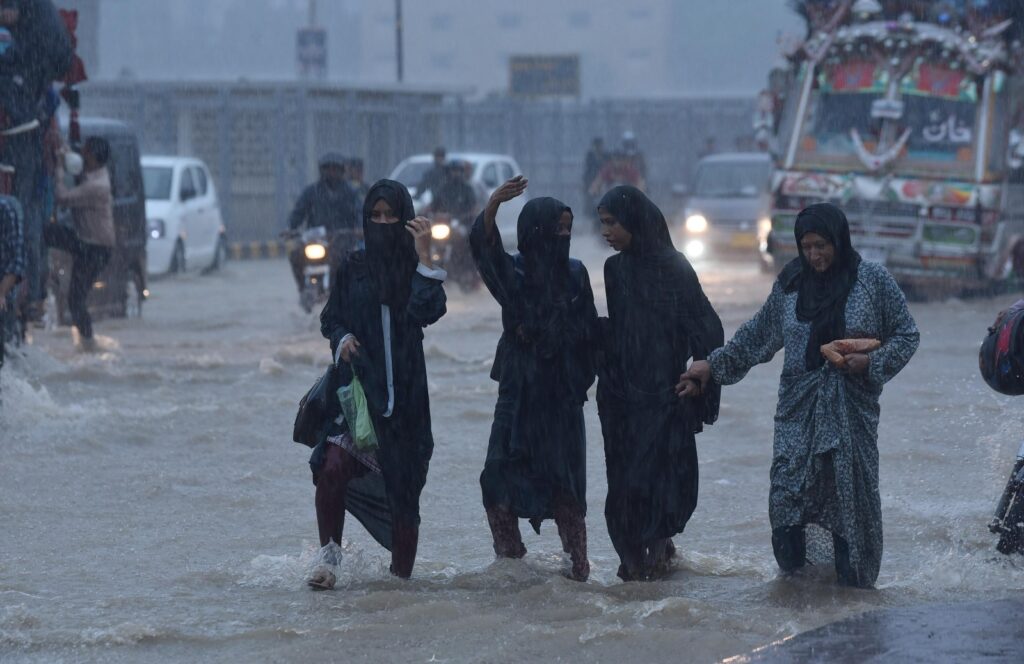
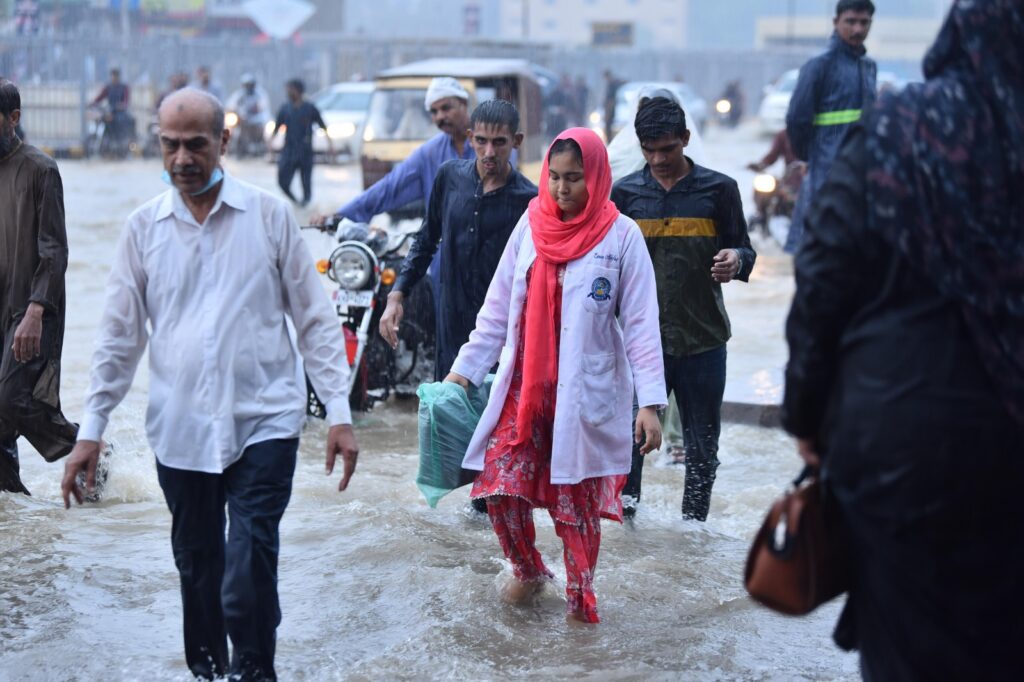
Emergency Response and Government Action
Sindh Chief Minister Syed Murad Ali Shah directed all departments to remain on high alert. He instructed strict monitoring of drains and nullahs to prevent urban flooding and ensured machinery and staff were fully mobilised. District administrations, police, municipal authorities, and traffic police were ordered to maintain coordination. Citizens were advised to avoid unnecessary travel, stay away from electricity poles and weak infrastructure, and follow traffic guidance.
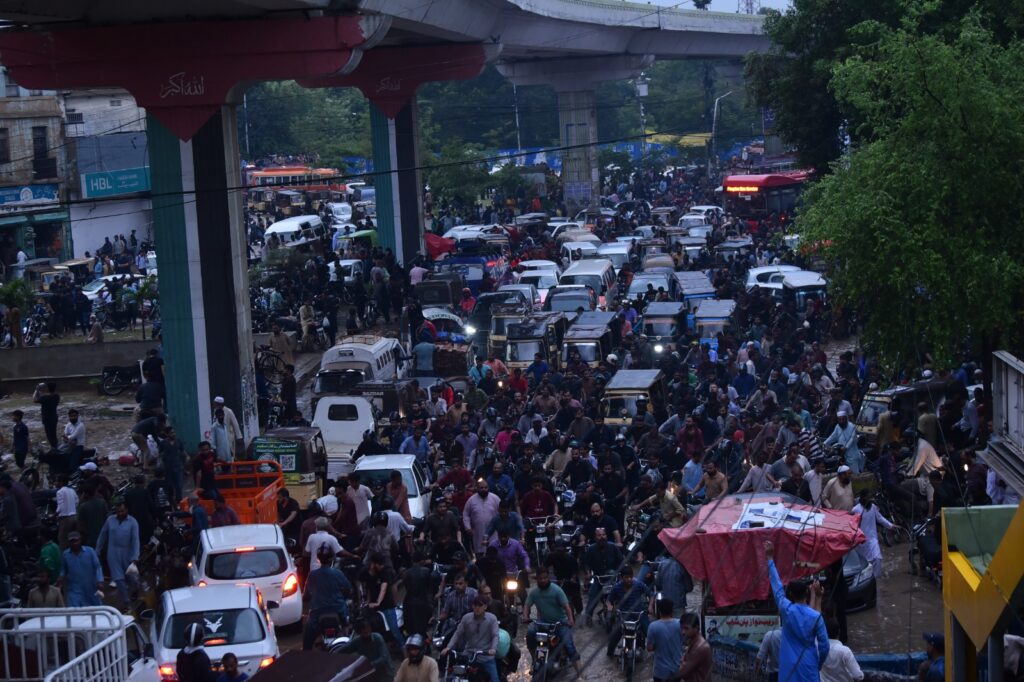
Prime Minister Calls Sindh CM
During the ongoing heavy rains, Prime Minister Shahbaz Sharif called Sindh Chief Minister Murad Ali Shah to inquire about the situation in Karachi and other cities. CM Shah briefed the Prime Minister on government arrangements and emergency operations.
Murad Ali Shah confirmed that drainage work was immediately launched after rainfall subsided. He expressed deep sorrow over the loss of precious lives. The Prime Minister expressed grief over the casualties and property damage and assured full federal support during the emergency. “The federal government is fully with the Sindh government,” he said. CM Murad Ali Shah thanked Prime Minister Shahbaz Sharif for his concern and support.
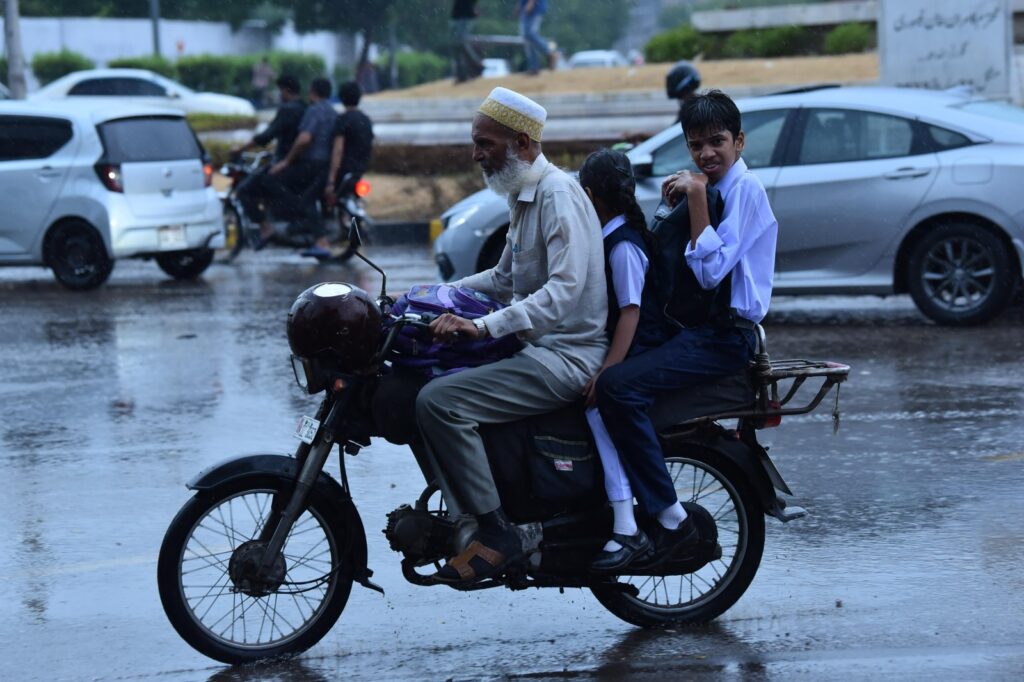
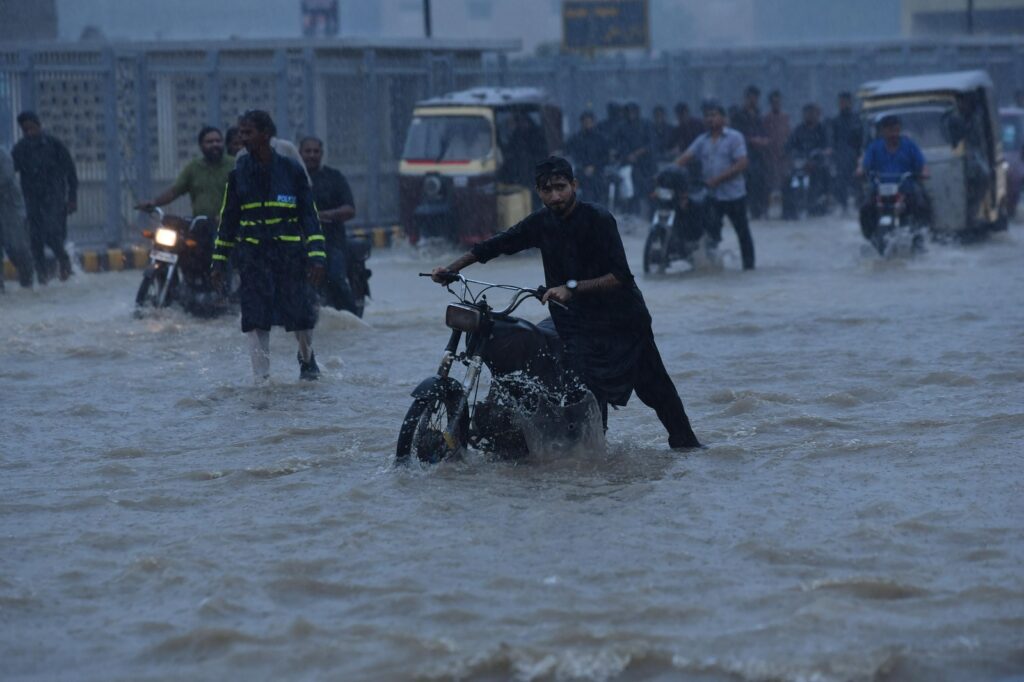
Airport and Transport Disruptions
Heavy rains caused major disruptions at Jinnah International Airport, with multiple flights canceled or diverted. Small training aircraft were grounded for safety. Roads and highways across Karachi were heavily waterlogged, slowing traffic and stranding commuters.
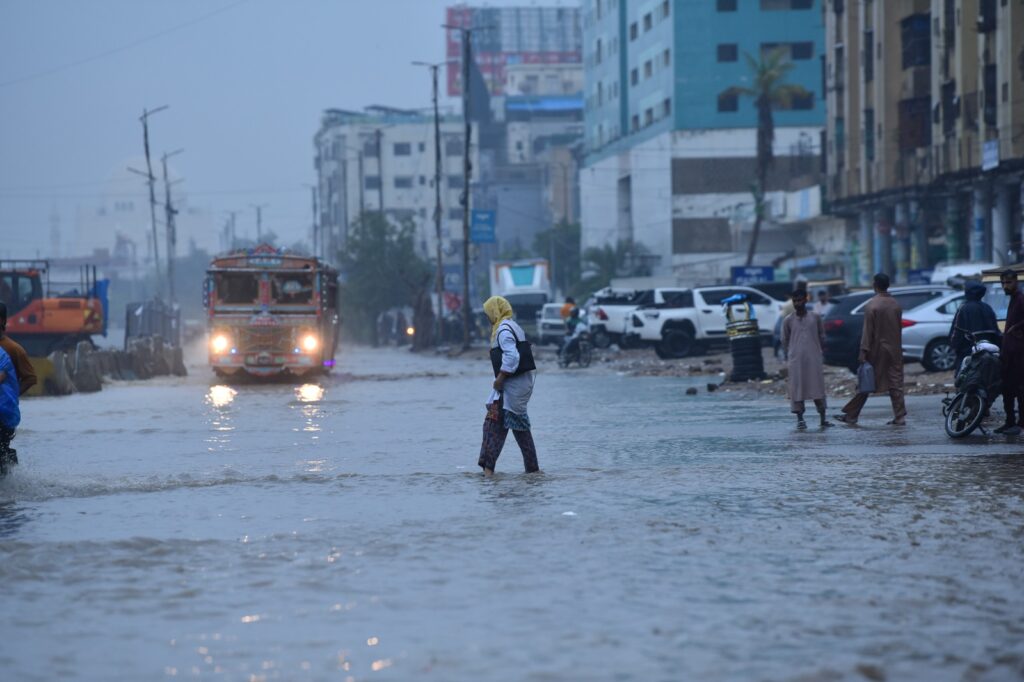
Weather Advisory
The PMD forecasted intermittent rain and thunderstorms in Karachi, Thatta, Badin, Sajawal, Tharparkar, Umerkot, Mirpurkhas, Hyderabad, Shaheed Benazirabad, Tando Allayar, Tando Muhammad Khan, Sanghar, Jamshoro, and scattered places in Larkana, Sukkur, Khairpur, and Jacobabad from August 19–22. Residents are advised to remain alert and take precautionary measures.
Government Advisory
Sindh Senior Minister Sharjeel Memon urged citizens to stay indoors, limit travel, and avoid risky areas. The provincial government, under CM Murad Ali Shah and local authorities, is actively managing drainage, emergency response, and public safety. The Karachi mayor’s office has established a Rain Emergency Cell, coordinating all essential services and helplines.























